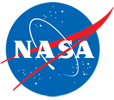I departed DC for Steamboat, still not knowing when things will arrive. While switching flights in Denver, I receive the shipping info: it’s supposed to arrive today!



[youtube DcBJxnmPE6c 468]
We used a forklift to put the big crate on the cat, and then off we go; the driver drives with a joystick.
[youtube bhtC6-DTIUM 468]
We have to go after the skiers are done for the day, so we go at night.
At the top, there is no forklift… guess we’ll have to unload the old-fashioned way. We finish up at 11pm — it’s been a 20-hour day, but now the radiometer has made it to SPL.




“Dr. Mike Durand and Ty Atkins (U. Colorado) worked really hard to set up a stand built by Goddard engineers to hold the radiometer at just the right angle…”
What is the “right angle” and why? Is there any merit in viewing from multiple angles, wrt to the Sun position?
Hi Mark,
Like many things in an experiment like this one, the “right angle” is a trade off. In this case between trying to match the 55 degree incidence angle (which is in the elevation plane) of the AMSR-E satellite radiometer within the constraints of the snow that nature happened to give us at our site (sloped snow surface within the roped-off area at our site). Multiple angles (elevation or azimuth) generally would provide reinforcing information vs. a single angle. However, for a microwave radiometer that does not depend on solar illumination to make measurements, the sun position is not as big of an issue as it is for a visible light sensor. And, logistics trumps everything. We simply did not have the time or resources to take readings at additional angles. Perhaps next time.
Ed Kim